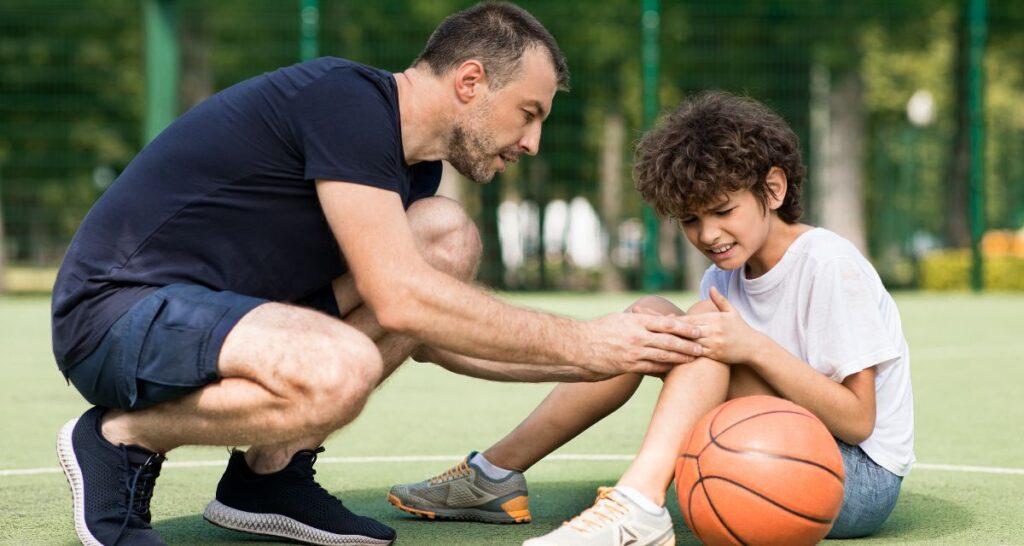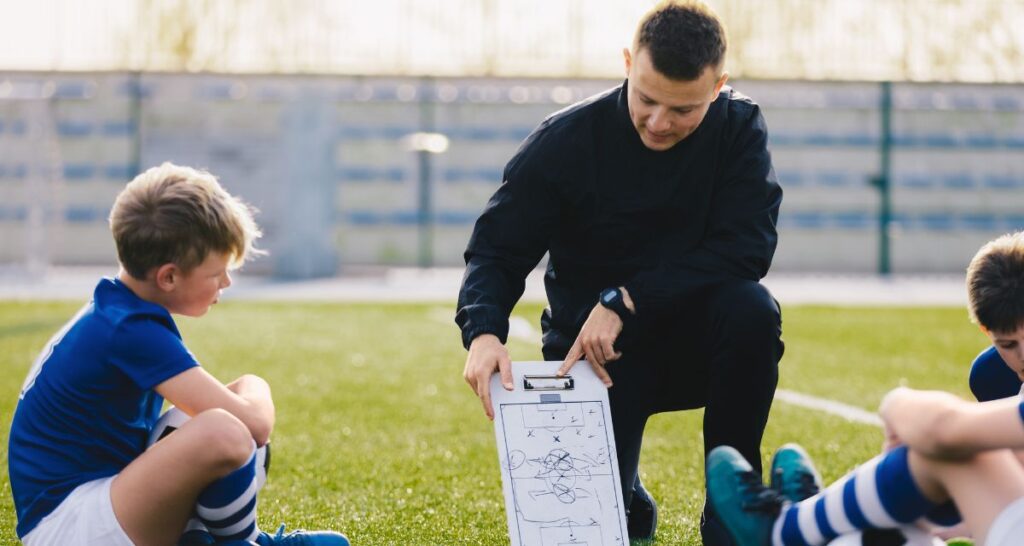Participation in youth sports can be an incredibly rewarding experience for children. Sports provide opportunities for kids to be physically active, learn new skills, make friends, and have fun. However, the involvement of parents in youth athletics is crucial for maximizing these benefits. At the same time, parental behavior at youth sporting events has frequently been the subject of scrutiny and criticism. This article will examine the importance of parents finding the right balance between being engaged supporters and overbearing critics when it comes to their children’s athletic pursuits.
Parents in Youth Sports Play a Pivotal Role
It’s clear that parents in youth sports play an integral role in shaping their child’s experience. Parents are often the ones registering their kids for sports, taking them to practices and games, and making financial and time commitments so they can participate. Their level of involvement and engagement impacts the enjoyment and learning outcomes children derive from athletics.
Research suggests an authoritative style combining high expectations with support and responsiveness is associated with the most positive outcomes for young athletes. On the other hand, excessive pressure and criticism from parents has been linked to increased anxiety, lower self-esteem, and higher dropout rates among youth participating in sports. Finding the right balance as a parent is key.

Being a Supportive Youth Sports Parent
Here are some tips for parents looking to be optimally supportive of their children in athletics:
- Let your child take the lead. Respect if they lack interest in sports altogether or gravitate towards certain activities over others. Avoid pushing them excessively.
- Focus praise on effort, attitude, and development rather than outcomes. Comments like “I’m proud of how hard you worked” go a lot further than “Great job winning today!”
- Model resilience by keeping setbacks in perspective. If your child is disappointed by a loss or poor performance, emphasize that they’ll learn and improve.
- Get to know the coach to understand their philosophy and expectations. Form a cooperative, communicative relationship.
- Make participation fun away from the field with things like backyard practices. Keep sports balanced with other interests and responsibilities.
- Take an active volunteer role with the team when possible. This demonstrates commitment and support.
Avoiding Overzealous, Critical Parenting
Just as problematic as disengaged sports parents are those who become overbearing, pushy, and critical. Here are some common detrimental behaviors to avoid:
- Living vicariously through your child to fulfill unmet goals of your own or attempting to force an unwilling child to participate to assuage these feelings.
- Offering coaching and criticism from the sidelines during games and contradicting the real coach’s guidance. Parents should be cheerleaders during competitions.
- Critiquing every mistake and placing excessive pressure on your child to perform well instead of simply making an effort.
- Fostering hostility towards opponents, officials, coaches, or other parents by challenging calls, making excuses for losses, or behaving confrontationally.
- Losing perspective on the purpose of youth sports being about learning and fun rather than wins and losses.

Finding the Right Balance
Parents in youth sports should aim for a balanced approach characterized by:
- Giving encouragement and comfort without being overbearing. Praise the effort given.
- Providing supportive feedback but leaving the bulk of coaching to those in that formal role unless asked for input.
- Letting the child own their participation and listening to their concerns and goals.
- Modeling and encouraging balanced priorities not fixated on sports above all else.
- Communicating openly with coaches while avoiding public criticism or hostility.
- Keeping competitive results in perspective relative to core objectives like learning, fun, and health.
When parents find this equilibrium, they give their children the best opportunity to gain self-esteem, skills, fitness, and friendship from youth athletics. Avoid the extremes of being absent and indifferent or overly invested and critical. Listen and be supportive without making it all about you and your own expectations. If parents follow this balanced approach, sports can play a tremendously positive role in a young person’s development.
Conclusion
Like so many aspects of parenting, moderation, and balance are key to being involved with your child’s youth sports in a positive, supportive manner. Avoid the extremes of being completely uninvolved or overly invested. Provide encouragement, help out logistically if you can, and communicate openly with coaches and your child. By keeping youth sports participation in proper perspective, parents can ensure their kids gain self-esteem, fitness, skills, and fun from athletics. With the right balanced approach from parents, participating in youth sports can be incredibly rewarding for children.

Frequently Asked Questions About Parents in Youth Sports
Q: How involved should parents be in their child’s youth sports?
A: Parents should aim for a balanced level of involvement – engaged but not overbearing. Attend games to cheer them on, help out with logistics if possible, and support their interests. But avoid coaching from the sidelines or placing excessive pressure to perform.
Q: What should parents do if their child wants to quit a sport mid-season?
A: Have an open conversation about why they want to stop. Avoid guilt-tripping. If they are ready to move on, support that decision. Forcing a child to continue can breed resentment.
Q: My child just lost an important game and is very upset. What should I say?
A: Emphasize effort over results. Comfort them and put the loss in perspective. Use it as a learning opportunity about resilience and dealing with adversity. Avoid placing blame.
Q: Another parent on my child’s team is overly critical of the coach and kids. How do I handle this?
A: Lead by example with your own conduct. Privately speak to the coach and/or league officials about any major concerns. Avoid public confrontations.
Q: How can I volunteer with my child’s sports team in a helpful way?
A: Ask the coach what support is needed – this may involve bringing snacks, helping set up fields, coordinating schedules/carpools, etc. Your willingness to contribute matters more than the specifics.




